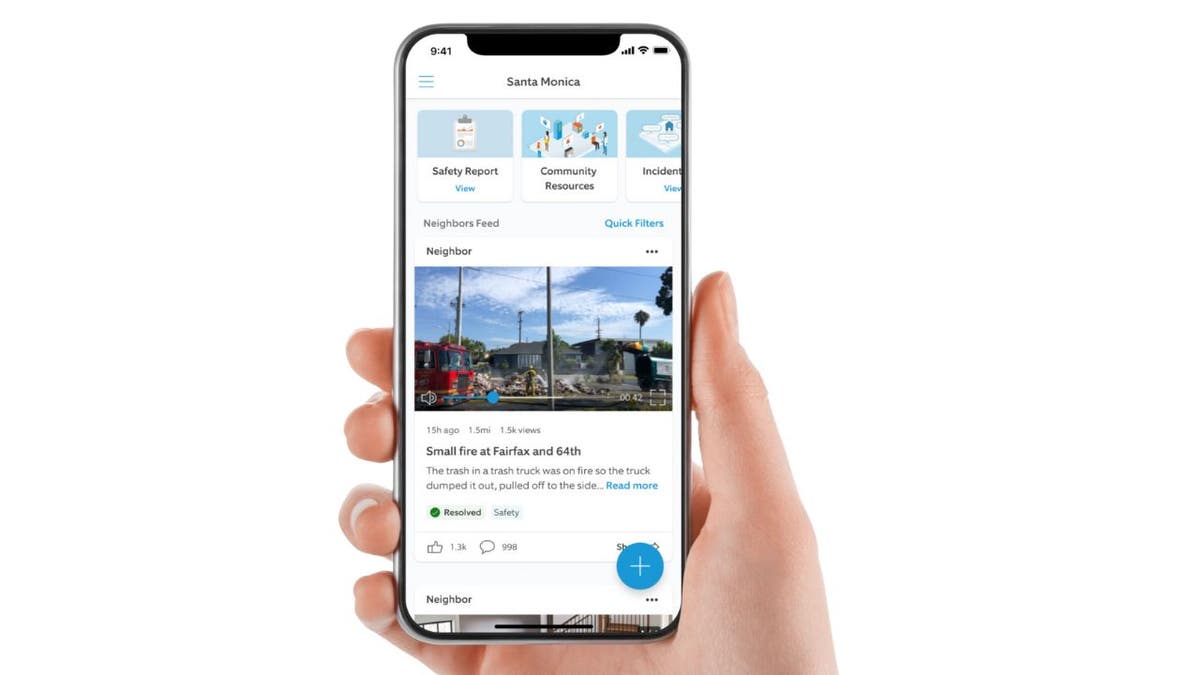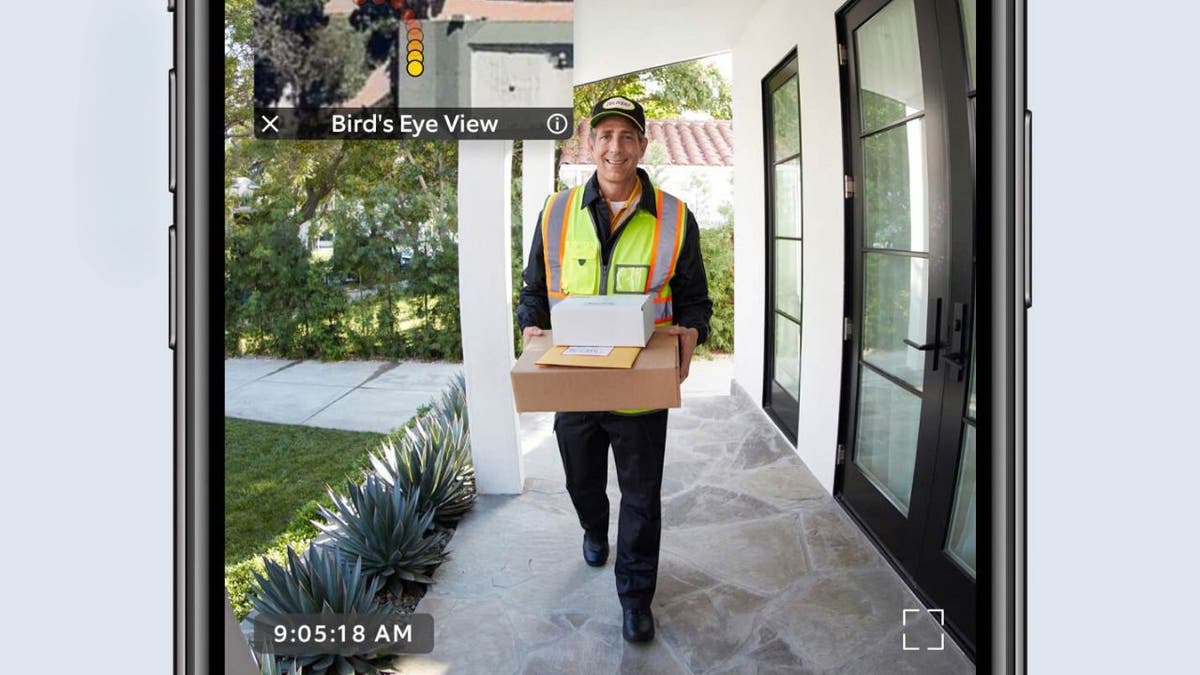In a bold move championing individual privacy, Amazon Ring has announced a significant policy shift. Starting February 2024, Ring will no longer facilitate police requests for home security footage through its Neighbors app. This decision marks a pivotal change in the balance between security and privacy.
Ring, a household name in home security, has faced criticism for its past practices of sharing security videos with police without user consent. The company’s latest software update, detailed in a recent blog post by Eric Kuhn, head of the Neighbors platform, highlights the removal of the “Request for Assistance” tool. This tool previously allowed law enforcement to request user footage directly via the app.
CLICK TO GET KURT’S FREE CYBERGUY NEWSLETTER WITH SECURITY ALERTS, QUICK VIDEO TIPS, TECH REVIEWS, AND EASY HOW-TO’S TO MAKE YOU SMARTER

Neighbors by Ring app (Ring) (Kurt "CyberGuy" Knutsson)
While police and fire departments can still use the Neighbors app to share safety tips and updates, the direct request and receipt of video content is now off the table. According to Ring, this change aligns more closely with their vision of empowering customers and fostering community connections.

View from Ring doorbell camera (Ring) (Kurt "CyberGuy" Knutsson)
MORE: TOP VIDEO DOORBELLS
Police can get access in these extreme cases
Despite this shift, law enforcement isn’t completely cut off from accessing Ring footage. In extreme cases like life-threatening emergencies — think kidnappings or attempted murder — police can still directly request footage from companies like Ring. These instances, however, are rare and subject to Ring’s own discretion. In fact, Ring has responded to such emergency requests only a handful of times in recent months.
Additionally, the traditional legal pathways remain open. Law enforcement can still obtain a warrant or subpoena to access video footage, subject to judicial oversight and specific time constraints.

Ring doorbell camera (Ring) (Kurt "CyberGuy" Knutsson)
MORE: TOP PICKS TO AMP UP YOUR HOME SECURITY
What you need to do to limit police use of your Ring camera
For Ring users, this update requires little action. It’s advisable to keep your devices and apps updated to receive the latest firmware changes. Ring is not just taking away; they’re also adding new features like “Ring Moments” for sharing light-hearted videos and a “Best of Ring” video collection, enhancing the community aspect of the platform.
The takeaway here is clear: privacy matters. While security is paramount, it shouldn’t come at the cost of individual privacy. Ring’s decision reflects a growing awareness and respect for this balance after years of our reporting about this somewhat unknown secret.

Mom and daughter at the front door with Ring doorbell camera (Ring) (Kurt "CyberGuy" Knutsson)
Did you know that other Amazon devices, including Echo and Ring products, allow neighbors to connect to your network without your permission unless you opt out? It’s presumptuous on Amazon’s part to make this an automatic feature and I recommend you turn it off if you want better security. Here’s how.
How to Opt-Out of Sidewalk on your Ring Video Doorbell or Ring devices
Sidewalk is a feature from Amazon that allows your Ring devices to share a small portion of your internet bandwidth with your neighbors. If you are not comfortable with this, you can opt out of Sidewalk by following these simple steps.
- Launch Ring app
- Tap the 3-line menu in the top left
- Go to “Control Center” (towards the bottom of the navigation)
- Click “Amazon Sidewalk”
- Slide the Sidewalk slider button to the left so it reads “Turned off”
MORE: HOW TO DETECT A HACKER SPYING ON YOUR DOORBELL CAMERA
Non-cloud-connected cameras offer more privacy
For those concerned about privacy, consider devices offering local storage options. Unlike cloud-stored footage, local storage gives you more control, making it harder for companies to share your videos without consent — though they’re still subject to legal demands.

Security camera with local storage option (Blink) (Kurt "CyberGuy" Knutsson)
MORE: IS YOUR DOORBELL CAMERA VULNERABLE TO JAMMING OR INTERFERENCE?
Kurt’s key takeaways
Ring’s policy update is a significant step toward protecting individual privacy. It’s a move that encourages users to stay informed and consider their options in the evolving landscape of home security and privacy rights. Now is a great time to take a fresh look at your video doorbell privacy settings to make sure it feels right. Check the names of those who have access, ensuring cameras are only being shared with those you know and trust.
How do you feel about Ring’s decision to stop facilitating police requests for home security footage? Do you agree or disagree with it? Let us know by writing us at Cyberguy.com/Contact.
For more of my tech tips & security alerts, subscribe to my free CyberGuy Report Newsletter by heading to Cyberguy.com/Newsletter.
Ask Kurt a question or let us know what stories you’d like us to cover.
Answers to the most asked CyberGuy questions:
- What is the best way to protect your Mac, Windows, iPhone and Android devices from getting hacked?
- What is the best way to stay private, secure and anonymous while browsing the web?
- How can I get rid of robocalls with apps and data-removal services?
Copyright 2024 CyberGuy.com. All rights reserved.
